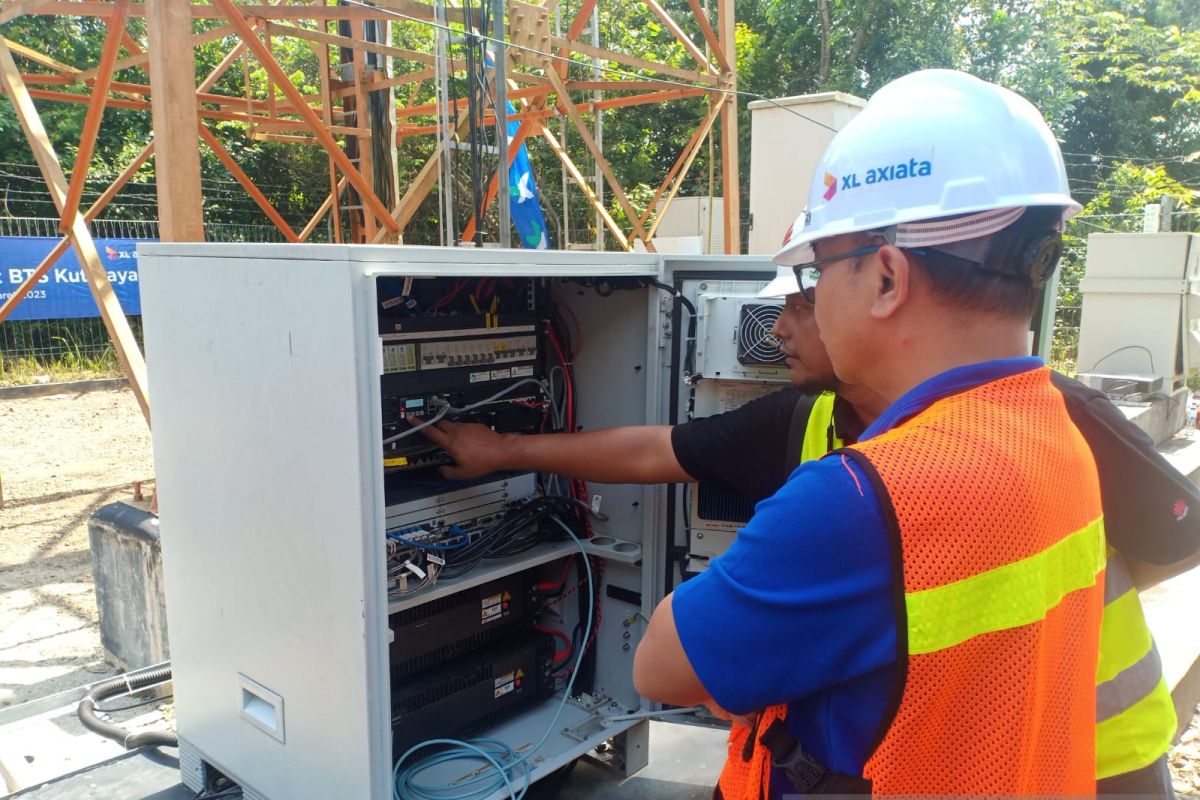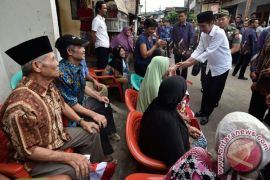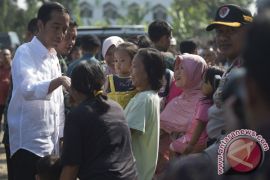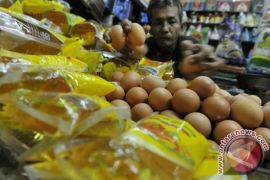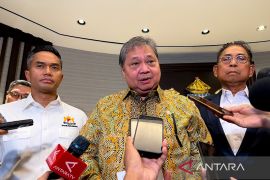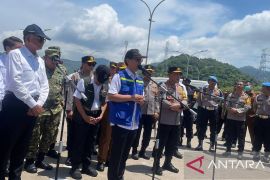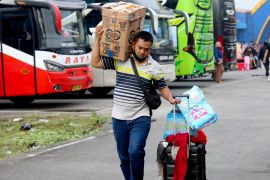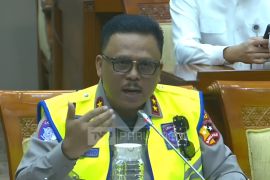There are several factors that may cause high levels of public mobility this year.
These include the revocation of public activity restrictions (PPKM), the fact that the country is entering the pre-endemic period, the economy is improving, and travel restrictions have been lifted, as well as the public's positive perception of the 2022 homecoming transportation operation.
During the homecoming period this year, much like in previous years, people are expected to frequently utilize telecommunications media such as social media, WhatsApp, text messages, or telephones for various activities, such as killing time, communicating, and uploading pictures.
All of these activities will certainly require a reliable and clean telecommunications network with no regions experiencing no network connectivity or blank spots.
Therefore, since much before the homecoming period, several telecommunications operators have been trying to improve their network's reliability and even enhance their capacity, which is estimated to increase during the homecoming period compared to normal.
Telecommunications operator PT XL Axiata Tbk. (XL Axiata) has estimated that during the period from Ramadhan until Eid homecoming this year, the company's service traffic will increase by up to 30 percent compared to normal.
The company has prepared every infrastructure to support the smoothness of customers' telecommunications needs.
XL Axiata's director and chief technology officer, I Gede Darmayusa, said that the increase in traffic during every Ramadhan and Eid homecoming may be related to changes in customer behavior.
According to Darmayusa, during these two periods, there is an increase in the number of Indonesians carrying out face-to-face meetings online with families, communities, and friends that they have not seen in a while.
Beyond improving capacity, other anticipatory actions have involved optimizing networks by observing the expected trend in public mobility during the Eid homecoming.
To this end, a number of regions, which usually serve as destinations for homecoming travel, specifically on Java Island, are being monitored closely.
During normal days, the company's data network is adequate for serving existing traffic.
To ensure that its network capability can sustain amid increased traffic, network capacity will still be improved by up to three times than normal days.
A number of network conditioning actions have been undertaken by the company's team by adjusting to the service types usage trend, especially data services, homecoming traditions, and customers' mobility throughout Eid homecoming.
The company has also taken the existence of new toll road infrastructure in several regions that people may use throughout the Eid homecoming into consideration.
The company is ensuring that most of the main homecoming routes have 4G LTE quality data network.
The company is routinely improving network quality based on any increase in traffic, for instance, by adding new base transceiver stations (BTS), improving BTS capacity and fiber optic network, and optimizing the network, Darmayusa informed.
The company has deemed that, in addition to the homecoming traffic in Java, public mobility in Sumatra is also quite large, which has necessitated network improvement so that customers can still communicate clearly.
The company has around 140 4G BTS along the Trans Sumatra Palembang-Lampung Toll Road, one of the most crowded main roads in Sumatra and the main homecoming route for Eid al-Fitr.
Not too long ago, an additional 63 4G BTS were installed in Ogan Komering Ilir and South Lampung, along the toll space that connects South Sumatra and also in the direction of Java.
Moreover, the company is carrying out capacity improvement of 81 existing BTS in South Lampung, Central Lampung, Ogan Ilir, Ogan Komering Ilir, Pesawaran, West Tulangbawang, and Palembang city.
In the past two years, traffic at the Palembang-Lampung Toll, which spans 373 kilometers in length, has increased by 117 percent.
Beyond supporting services for the company's customers using the toll road, the 4G network also serves customers in 484 villages in 35 sub-districts that are located along the toll road.
Network infrastructure strengthening, which involves optimization, network capacity improvement, and customer experience measurement, is being carried out by the company along the main route in Java, both on toll and non-toll roads, and the train track.
This is being done by preparing a network with 2–3 times bigger capacity compared to normal days.
Currently, there are more than 2 thousand 4G BTS supporting services along the Trans Java Toll, which measures 979 km in length.
Telkomsel's response
Not willing to lose to its competitor, state-owned cellular operator Telkomsel is also gearing up to carry out service network optimization to meet people’s digital demand during the Ramadhan and Eid al-Fitr 1444 H period.
President Director of Telkomsel Hendri Mulya Syam forecast that the broadband or data service traffic throughout Ramadhan and Eid al-Fitr 1444 H will increase by up to 11.2 percent.
As per Telkomsel's estimate, there will be an increase in access to social media by up to 6.2 percent and an increase in communication service usage by up to around 20 percent.
Meanwhile, the number of video-streaming service users as well as mobile gaming service users is likely to grow by 15.6 percent and 32.4 percent, respectively.
Next, browsing access is expected to rise by 2.4 percent and e-commerce services by seven percent.
Based on this estimation, Telkomsel has decided to carry out a technology update with a focus on 490 points of interest (POIs) spread out in various regions of Indonesia.
These encompass 59 residential areas, 68 main transportation transit areas (airports, stations, terminals, and seaports), 315 special areas (public service centers, town squares, and shopping centers), 28 main homecoming route areas, and 20 major mosques.
Network tests have been carried out by Telkomsel on the homecoming route that spans 17,895 km to ensure network quality and availability.
Network infrastructure capability strengthening has also been undertaken by improving the capacity of 277 4G/LTE BTS units, adding 221 new 4G/LTE BTS units, and operating additional 53 compact mobile BTS (combat) units.
These complement more than 260 thousand Telkomsel BTS units, which serve 96 percent of the Indonesian population.
Through network strengthening by telecommunications operators, the public is expected to communicate, deliver news, and use various social media as a form of entertainment through their communication hardware.
Related news: Expect uptick in number of exodus participants this year: Minister
Related news: Aim to reduce motorcycle traffic with free exodus transport: govt
Editor: Rahmad Nasution
Copyright © ANTARA 2023
